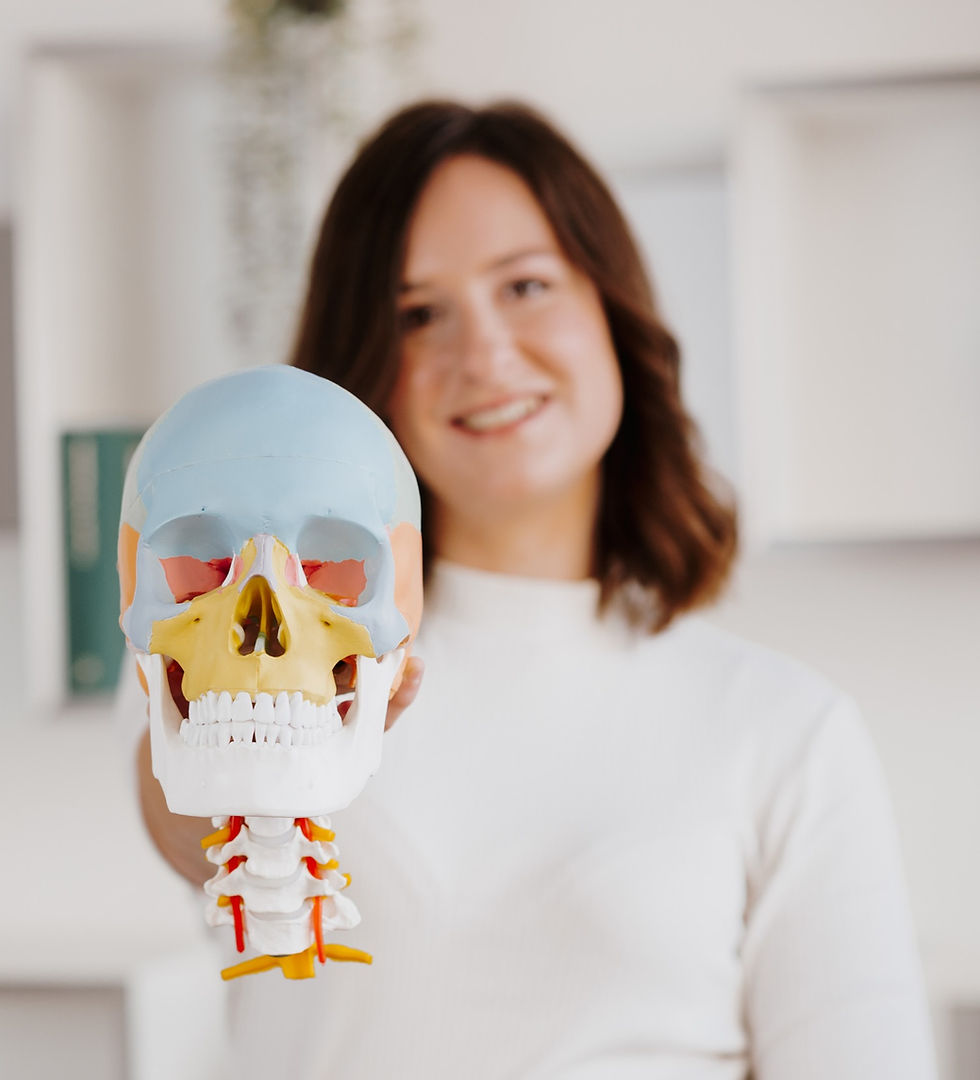Water after an osteopathic treatment
- Melanie Kirsten

- Oct 18, 2023
- 1 min read
Here's why you should always drink water after an osteopathic treatment:
If you have chronic pain in one area, there is also chronic tension, which primarily affects the muscles and connective tissue. Connective tissue, also known as fascia, is wrapped around all of our muscles like cling film and connects our body from head to toe. Therefore, they can even cause unrelated body parts to influence each other.
You know those stubborn, tight spots where you can run your fingers across your neck or shoulders? These are large fascia knots.
Normally the layers of fascia slide over each other and thus enable a
smooth, easy movement. When the fascial layers are stressed or injured or overloaded, they begin to "stick" together, which leads to these areas of tension. As a result, they receive less blood flow. More waste products from normal cell metabolism accumulate, which cannot be properly removed. This can contribute to pain and inflammation.
If we treat these fascia knots, and thus the hardening between them, fascia layers break down, our blood vessels are flooded with the accumulated waste products , which can now flow freely out of the tissue. We may feel achy, sore, tired, unfocused, more emotional and thirsty. Water helps hydrate tissue that was previously stuck together, meaning we receive more nutrients for repair and more waste products are transported to the kidneys. The metabolism is thus stimulated and any unpleasant feelings after the treatment are alleviated or do not arise at all.
Good blood circulation is essential for healthy muscle and connective tissue function and can play an important role in pain relief and healing.
Do you have any questions? Then please contact PHEOS München!





Comments